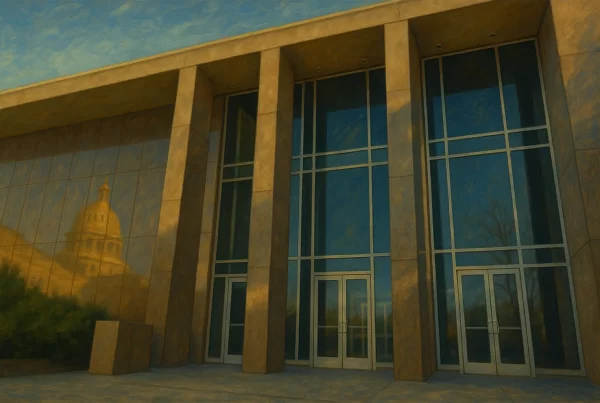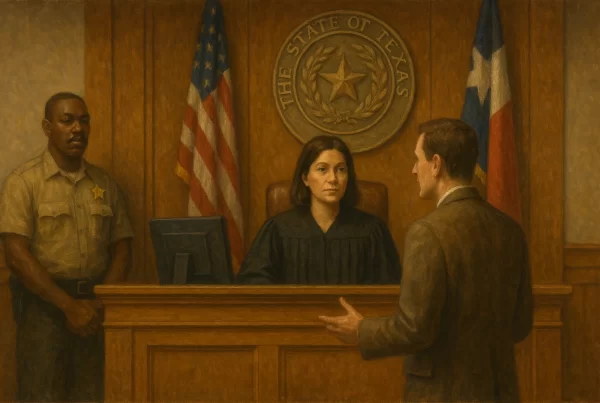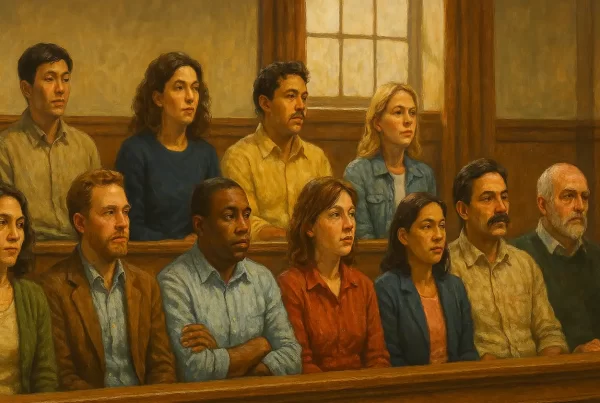Jurisdiction of Federal Courts
Federal courts in Texas have jurisdiction over cases that involve violations of federal law, the U.S. Constitution, and disputes where the U.S. government is a party.
Federal courts are tasked with interpreting and enforcing federal laws that affect multiple states or the nation as a whole. For example, federal courts handle cases involving interstate commerce, including bankruptcies and antitrust matters, immigration, copyright, and patents.
Additionally, federal courts play a crucial role in protecting and defining the rights of individuals as outlined in the Bill of Rights of the U.S. Constitution, ensuring that constitutional freedoms such as free speech, due process, and protection from unreasonable searches and seizures are upheld by both state and federal authorities.
Federal courts generally do not have authority over state law violations. As such, crimes such as murder, robbery, and theft, as well as family disputes and most contract-related issues, are typically heard in state courts. In this way, the Texas federal courts focus on federal issues, leaving state courts to manage the broader array of local and state legal matters.
Appointment of Federal Judges
District court judges are appointed by the U.S. president with the consent of the U.S. Senate and serve a life term. Magistrate judges, who assist federal district courts, are appointed by district judges for fixed terms. In contrast, state judges in Texas are elected by the public in partisan elections and serve fixed terms.
Boundaries of Federal Courts in Texas
Texas has four federal judicial districts, each of which hears cases from a particular part of the state, and each of which employs about two dozen judges, including district court judges, magistrate judges, and bankruptcy judges. The courts are called:
- U.S. District Court for the Northern District of Texas;
- U.S. District Court for the Eastern District of Texas;
- U.S. District and Bankruptcy Court for the Southern District of Texas;
- U.S. District Court for the Western District of Texas.
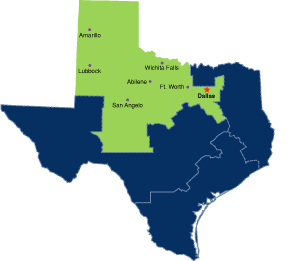
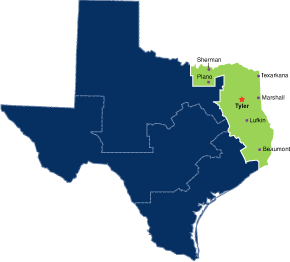
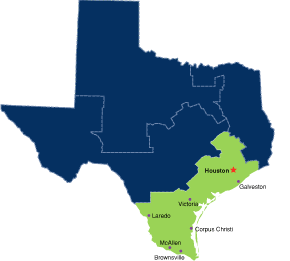
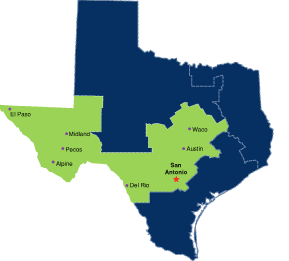
Federal Appellate Process
Appeals from all Texas federal courts go to the U.S. Fifth Circuit Court of Appeals, based in New Orleans, which also hears cases from Louisiana and Mississippi. The Fifth Circuit reviews decisions made by district courts and decides on the correct application of the law. It does not re-try cases but focuses on legal errors in the lower court’s ruling. If a mistake is found, the Fifth Circuit can overturn or modify the decision; if not, it affirms the ruling.
Rulings by the Fifth Circuit have a significant impact on legal precedents in Texas and the broader region. Parties dissatisfied with the Fifth Circuit’s decision may petition the U.S. Supreme Court, although the Supreme Court hears only a limited number of cases.
The appellate process in the Fifth Circuit typically involves a panel of three judges who review written briefs and oral arguments.
Notable Cases in Texas Federal Courts
Texas v. United States (2018): A case challenging the Affordable Care Act (ACA), particularly the individual mandate provision, brought to the Fifth Circuit and examined the constitutionality of key provisions of the healthcare law.
Texas v. Johnson (1989): Originating in Texas, this case involved a protester burning the American flag. The U.S. Supreme Court ruled that flag burning was protected under the First Amendment as a form of free speech.
i4i v. Microsoft (2009): A patent infringement case in the Eastern District of Texas where the court upheld the validity of i4i’s patent against Microsoft, influencing patent litigation standards across the country.
Enron Scandal Cases (2000s): Federal courts in Texas prosecuted individuals involved in the Enron corporate fraud scandal, including high-profile cases against executives like Jeffrey Skilling and Kenneth Lay.
Texas v. United States (2015): Texas challenged the Obama administration’s DAPA immigration program, with the case reaching the Fifth Circuit and shaping national immigration policy debates.
Veasey v. Perry (2016): Texas federal courts ruled on the constitutionality of the state’s voter ID law, addressing concerns of voter suppression and civil rights under the Voting Rights Act.
United States v. Texas (2016): Texas was involved in a lawsuit over the U.S. Department of Justice’s attempt to block a merger between two telecommunications giants. The case raised important questions regarding antitrust law enforcement.
Kelley v. Texas (2013): A case in which the Fifth Circuit ruled that Texas’ restrictions on the right of public employees to file claims related to discrimination violated federal labor law.
Abbott v. Perez (2018): A case dealing with Texas’ redistricting maps, where federal courts ruled that the state’s district lines violated the Voting Rights Act by diluting the voting power of minority groups.
Fisher v. University of Texas (2013 & 2016): This high-profile affirmative action case challenged the University of Texas’ admissions policy. The U.S. Supreme Court ultimately upheld the university’s admissions process, impacting the future of affirmative action policies in higher education.
United States v. Apple Inc. (2016): In a price-fixing case involving e-book publishers, federal courts in Texas played a critical role in examining Apple’s role in anti-competitive practices that affected consumers and market pricing.
